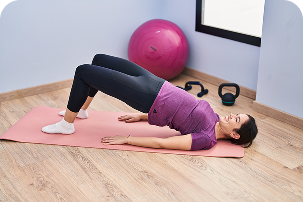Incontinence Education & Support
Guidance and resources to manage symptoms and regain control with confidence
Empower Yourself with the Right Information
Incontinence can be a distressing condition, and navigating its challenges isn’t always easy. Whether it’s the embarrassment of seeking help or uncertainty about where to turn, it’s common to feel overwhelmed.
That’s why proper support and information are key. We offer educational resources designed to help you understand the condition and manage it more confidently.
Bladder Training Techniques
Learn how scheduled voiding and habit training can help reduce urgency and improve bladder control over time.
Read More →
Pelvic Floor Exercises for Incontinence
Strengthen key muscles that support bladder and bowel control with guided exercises that improve coordination and stability.
Read More →
Dietary Changes for Incontinence
Discover how simple diet changes can ease symptoms, regulate bowel and bladder function, and enhance your well-being.
Read More →
Living with Incontinences
Find practical tips and support strategies to navigate daily life with confidence and reduce stress related to incontinence.
Read More →
Why Patients Trust Northwest Continence Center
We take a science-based, compassionate approach that puts your comfort and results first.
Advanced Axonics Therapy
A minimally invasive solution that restores nerve communication for lasting relief.
Personalized, Science-Based Care
Every treatment plan is tailored to your unique needs using proven medical approaches.
Experienced, Specialized Providers
Our experts are trained in continence-focused procedures and neuromodulation techniques.
Judgment-Free Patient Support
We create a respectful, compassionate environment where you feel safe and heard.
We’re More Than Just a Clinic
We understand that incontinence can be emotional and isolating. That’s why we’re committed to making your experience safe, respectful, and empowering. Every visit is designed to make you feel heard and supported.
Let’s find the right solution together.





